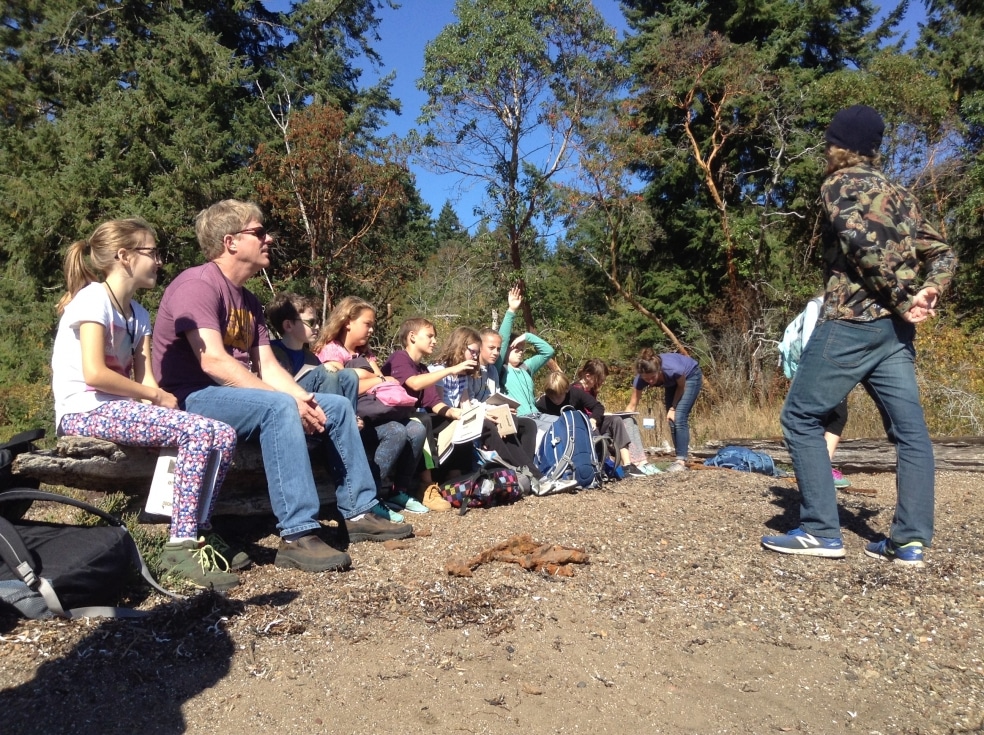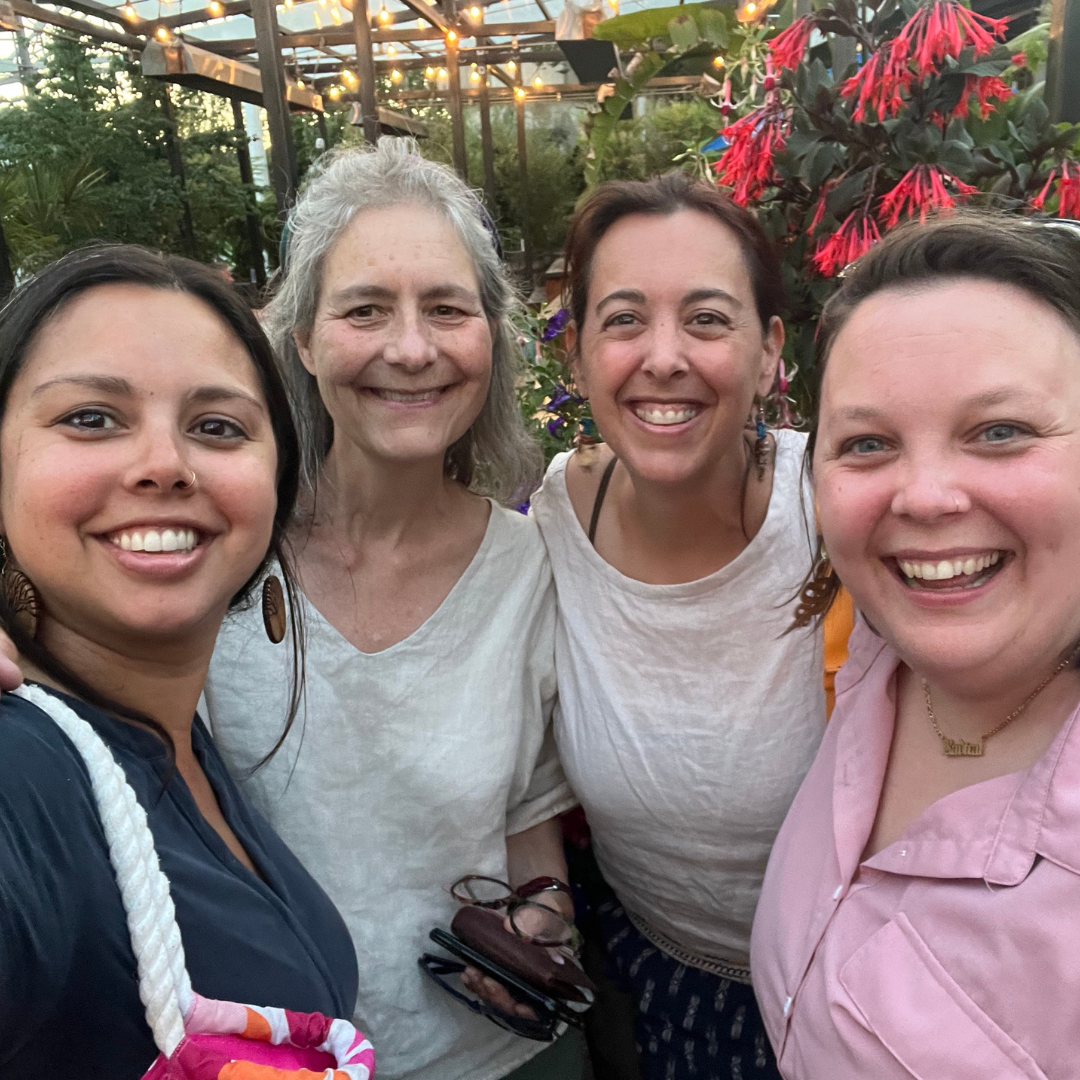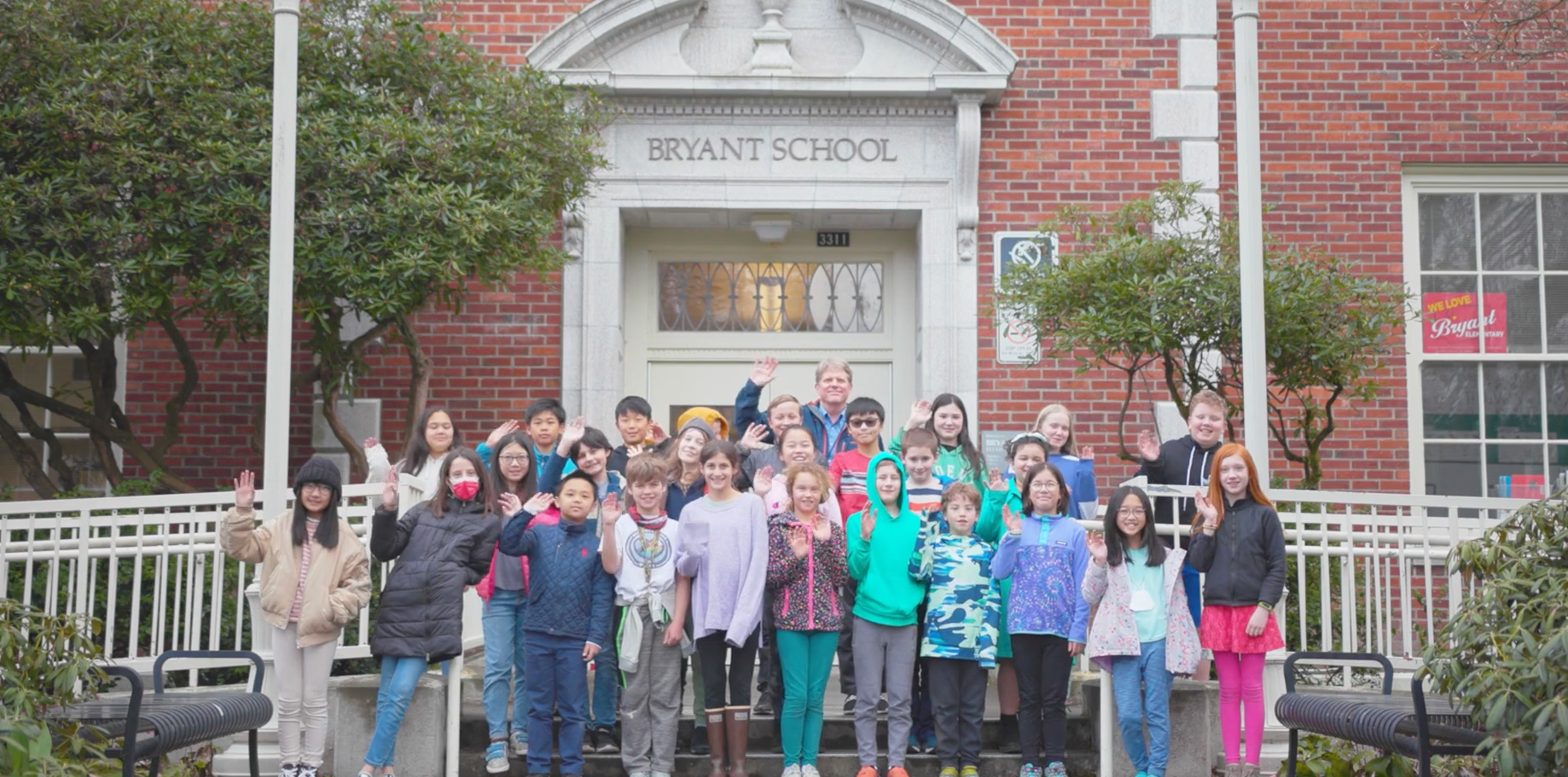Our work with teachers is critical in broadening our reach in the region.
Author: Hanna Hupp
Steve Garlid has been involved with IslandWood since before it was “IslandWood.” As a teacher committed to having a meaningful influence on his students, he has been bringing his 5th grade Bryant Elementary School classes to the School Overnight Program for 16 years, and each year he witnesses how IslandWood enhances his students’ learning, broadens their perspectives, and helps them become more mature and reflective people. We caught up with Steve to learn about his evolution as a teacher over his 24-year career, his relationship with IslandWood, and the challenges and opportunities facing teachers today.
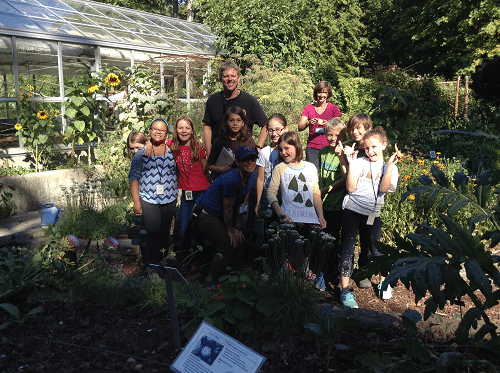
Steve Garlid poses with students and Garden Educator Jen Prodzinski in the garden.
What initially inspired you to become a teacher, and what has made you continue in this profession throughout your life?
My interest in teaching grew out of a desire to have meaningful influence and contribute in positive ways to my community. Teaching allowed me to pull together my various interests (writing, art, speaking, theater, literature) and channel them in ways that would help kids learn. One of my greatest influences, Shinichi Suzuki, taught that student learning and talent is a product of the environment they grow up in. The goal of cultivating environments that enhance learning is simple, but far from easy. Teaching offers lifelong intellectual and emotional challenges.
How did you first learn about IslandWood? How long have you been visiting IslandWood?
I first heard of IslandWood before it was called “IslandWood.” A colleague of mine introduced the idea of taking her fourth grade class to a place called the Puget Sound Environmental Learning Center. I believe this was in 2001. We began taking our fifth graders in 2002, and have taken them every year since.
How has your involvement with IslandWood changed or grown over the years?
At first, I came to IslandWood as a relatively new 5th grade teacher/learner. At that stage, I was still gathering ideas and forming the foundation of my teaching philosophy. Today, I go to IslandWood more as a teacher/leader. I still approach IslandWood as a learner, but I also see myself in a mentorship role as I work with field instructors and younger teachers on my team. It’s less and less about me and my performance, and more and more about enhancing the students’ experiences of discovery.
What brings you back to the SOP Program every year? What do you and your students get out of the experience?
Going to IslandWood has become ingrained in the Bryant community. Students in kindergarten look forward to it for years, as do their parents. We come back because IslandWood continues to explore new ways to enhance student learning, and offers high-quality field instruction in a truly exceptional setting. We also like the snickerdoodles! Students gain an experience that helps form them into more mature, reflective people. They start to think of themselves as part of a greater whole. They also get a little separation from home which helps them gain perspective on their lives.
What is the role of science curriculum and teaching about the environment in your classroom?
As a teacher, I try to bridge the concepts we discuss at IslandWood in September with the lessons we engage in at school throughout the year. This means building models, gathering data from local streams, examining human impacts on salmon populations, designing solutions to challenges of growth in our community, and working in teams to solve problems.
What challenges do you see facing teachers today? Are there different challenges facing new teachers versus veterans?
Time and money are two of the great challenges teachers face. Every year, teachers are asked to add something new to an already crammed list of objectives. It is rare that anything is intentionally removed from a teacher’s list of duties. This puts a great deal of pressure on teachers, and ultimately on students. Lack of funding has been a challenge that I’ve seen my entire career. Teachers and communities are continually scraping by and having to spend a lot of creative energy to raise enough money to sustain schools that function adequately. Teachers who are new feel this most acutely, as their positions are often on the line during the first several years of their careers.
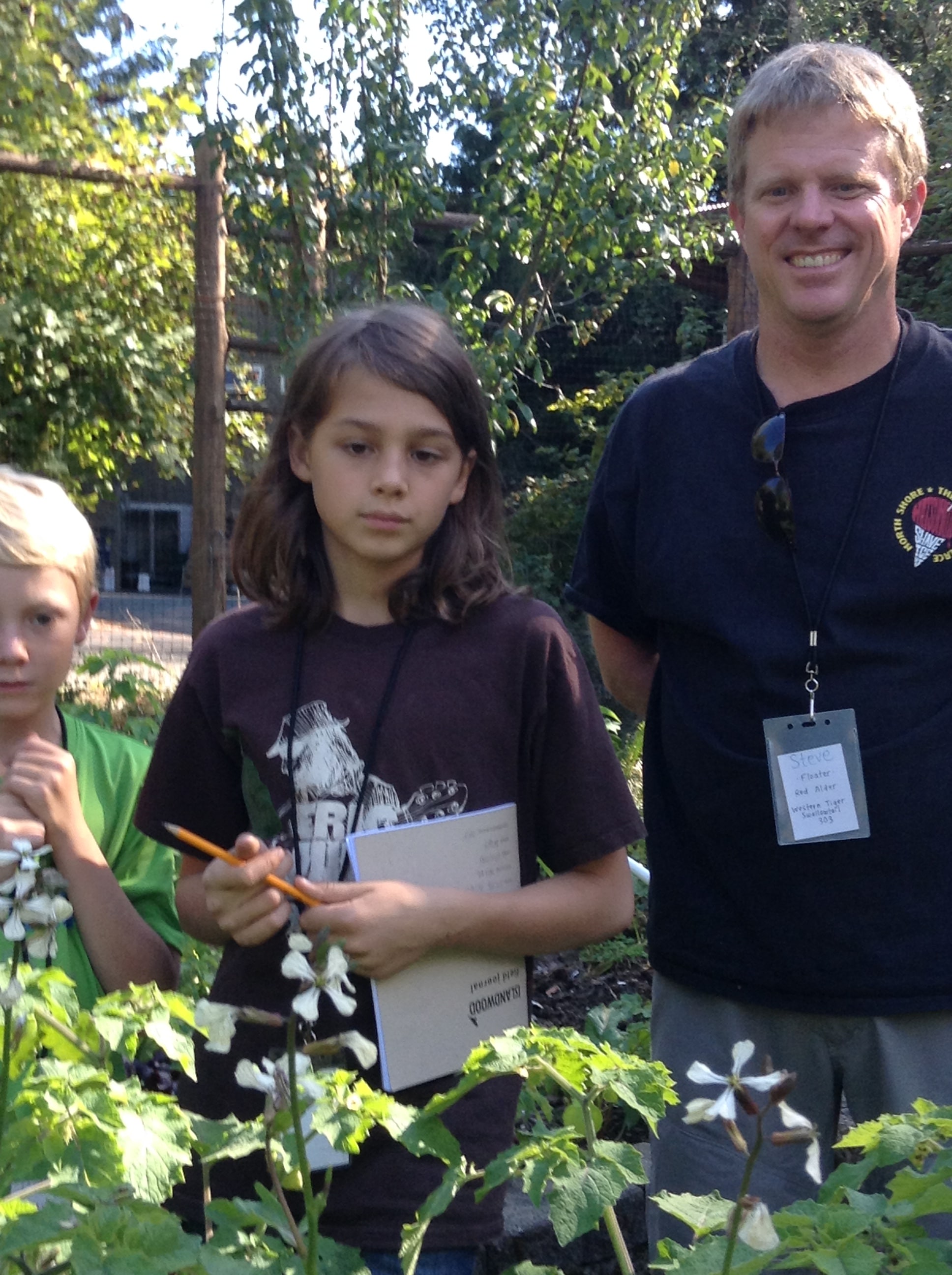
Steve Garlid in the garden with students.
What do you think IslandWood’s role in preparing current and future teachers could be?
I could write a book to answer this question! I think IslandWood has tremendous potential to help future teachers see connections between students, teachers, and the natural world. Building those self-to-other relationships could go a long way to developing stronger, healthier, more sustainable communities. IslandWood is a great place to help new teachers see where they stand, and how they have influence in the world.

